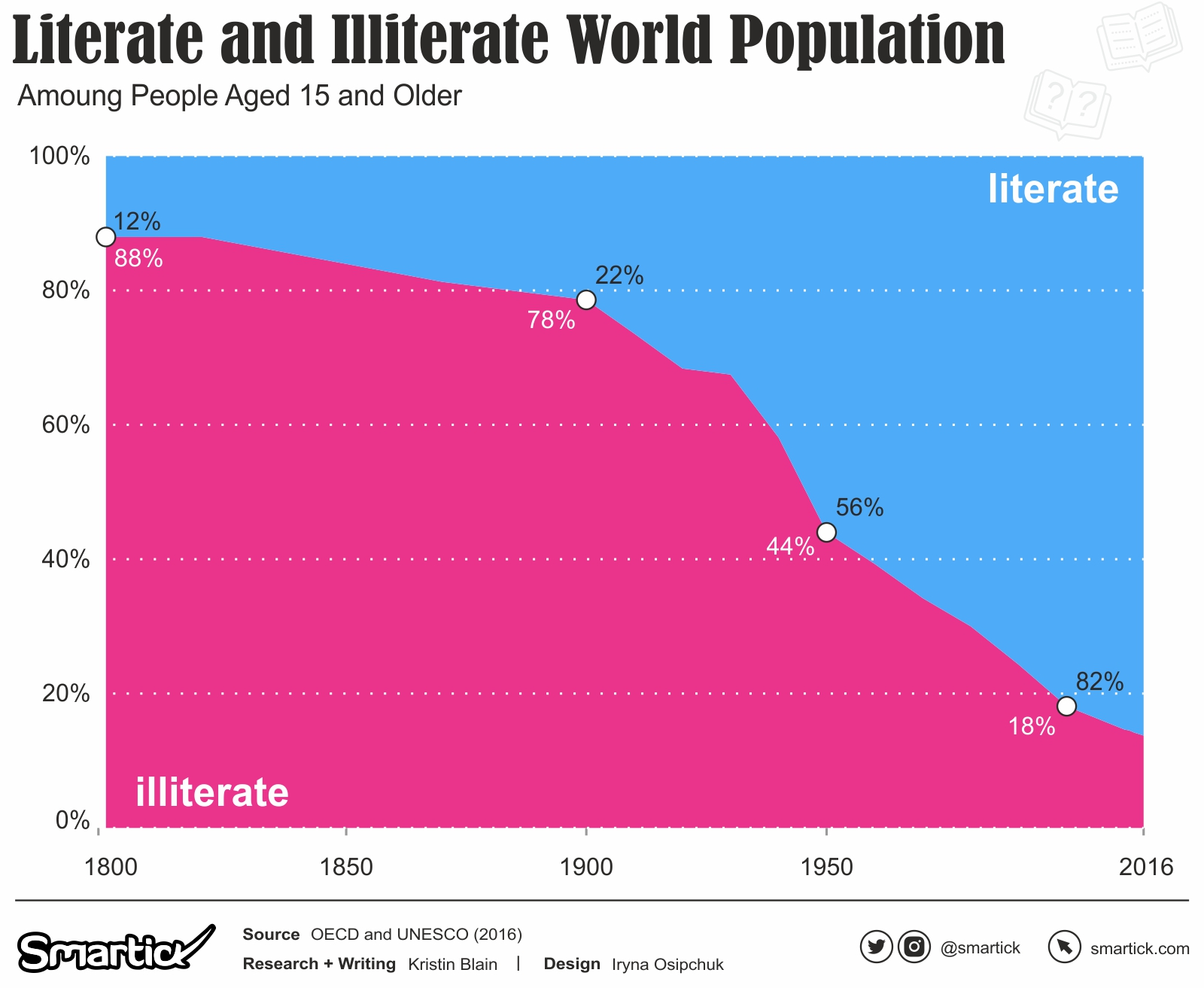
Throughout history, the development of literacy has been a remarkable journey, shaping societies and empowering individuals. While the earliest forms of written communication trace back to around 3,500-3,000 BCE, the accessibility and prevalence of literacy were confined to the privileged few, tightly intertwined with power dynamics.
It wasn’t until the Middle Ages that book production began to flourish, gradually sparking a shift toward a more literate society in the Western world. This transformative process unfolded over centuries, driven by the Enlightenment’s revolutionary ideals and the pursuit of universal literacy. However, it would take several more generations before this lofty ambition approached reality.

The 19th and 20th centuries marked a turning point in the journey toward widespread literacy, especially in early-industrialized nations. During this era, the rates of literacy began to soar, inching closer to universality. A fundamental catalyst behind this surge was the recognition of education as a vital cornerstone for societal progress.
To gain a deeper understanding of the extraordinary expansion of literacy, let us examine a visualization that captures the estimated global literacy rates from 1800 to 2016. This graphical representation reveals a steady but gradual growth in literacy during the earlier years. However, it is the latter half of the 20th century that witnessed a remarkable acceleration, fueled by a concerted global effort to prioritize basic education. For a comprehensive exploration of the educational landscape’s evolution worldwide, refer to our detailed entry on Financing Education.
The significance of this upward trajectory in literacy cannot be overstated. It has revolutionized societies, paving the way for knowledge dissemination, critical thinking, and socio-economic empowerment. The empowerment that comes with the ability to read and write opens doors to opportunities and breaks the chains of ignorance. It serves as the foundation for individual growth, economic advancement, and societal progress.
Today, in the 21st century, the fruits of this journey are evident. The world has experienced a substantial increase in global literacy rates, fostering a more informed and interconnected global community. People from diverse backgrounds, cultures, and nations can now engage in dialogue, share ideas, and participate in the collective exchange of knowledge.
Moreover, literacy has become a vital instrument for social mobility, bridging the gap between the haves and have-nots. It has the power to transcend socio-economic barriers and empower individuals to pursue their aspirations, dreams, and ambitions. By providing equal access to education and promoting literacy, societies can unlock the vast potential of their citizens, fostering innovation, creativity, and sustainable development.
However, our journey toward universal literacy is far from complete. Despite the significant progress achieved, there are still regions and communities where illiteracy persists as a formidable obstacle. In these pockets of limited access to education, individuals face barriers that prevent them from fully participating in the opportunities of the modern world.
To continue advancing on this path, concerted efforts are needed. Governments, organizations, and individuals must collaborate to eliminate disparities in educational opportunities, ensuring that quality education reaches every corner of the globe. Investment in educational infrastructure, teacher training, and technological advancements can play a pivotal role in bridging the remaining gaps.
As we reflect on the remarkable progress made in the realm of literacy, let us embrace the responsibility to build upon this foundation. Let us strive for a world where literacy knows no boundaries, where every individual has the opportunity to unlock their full potential. Together, we can continue the journey toward a more enlightened, equitable, and empowered global society.

